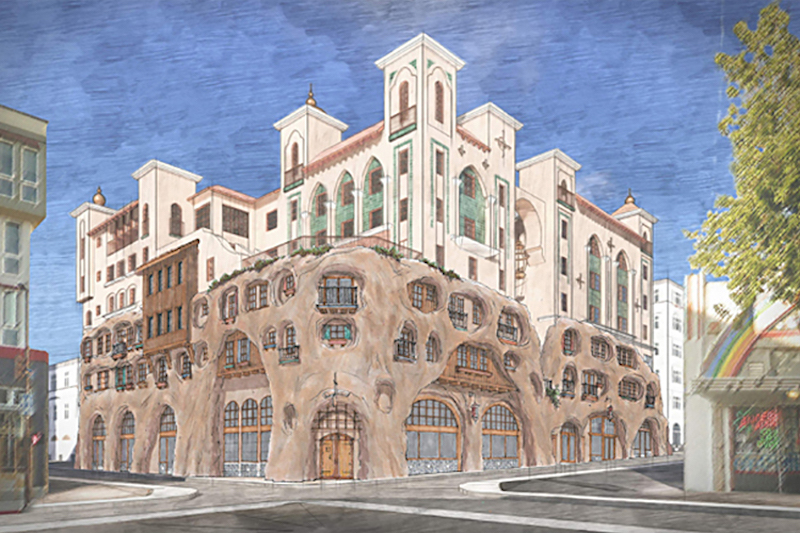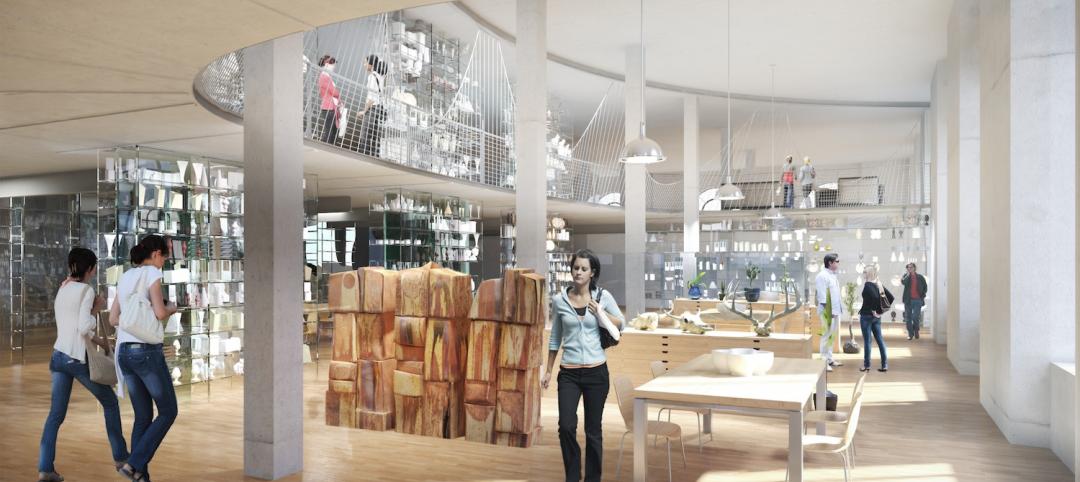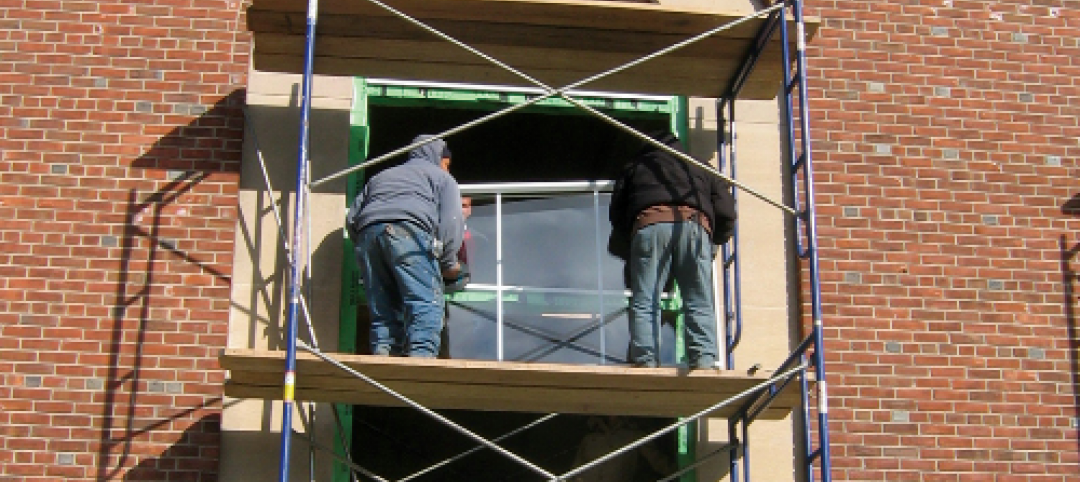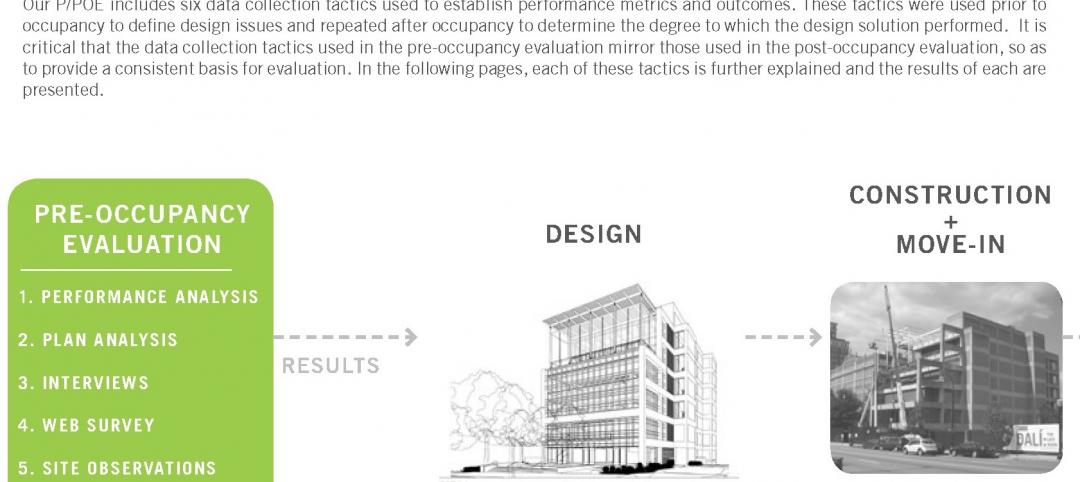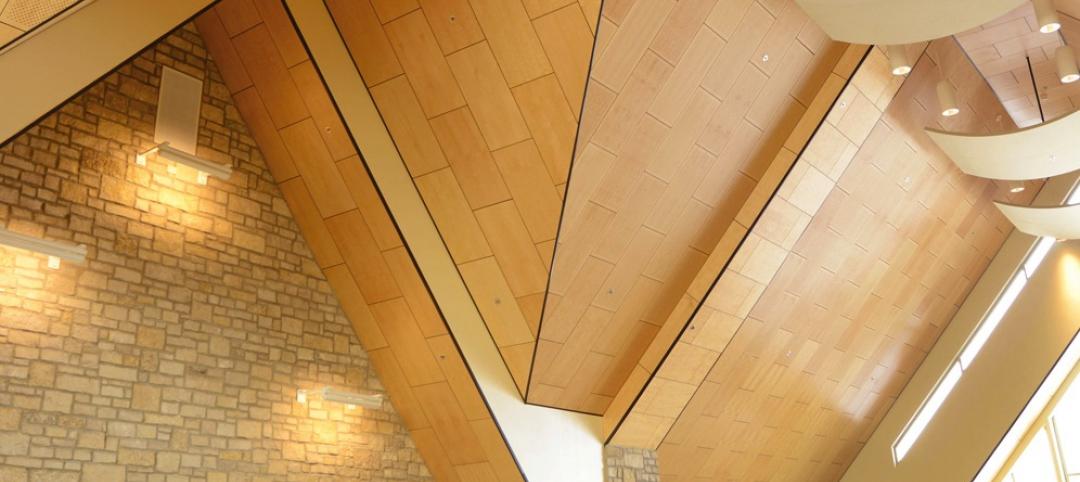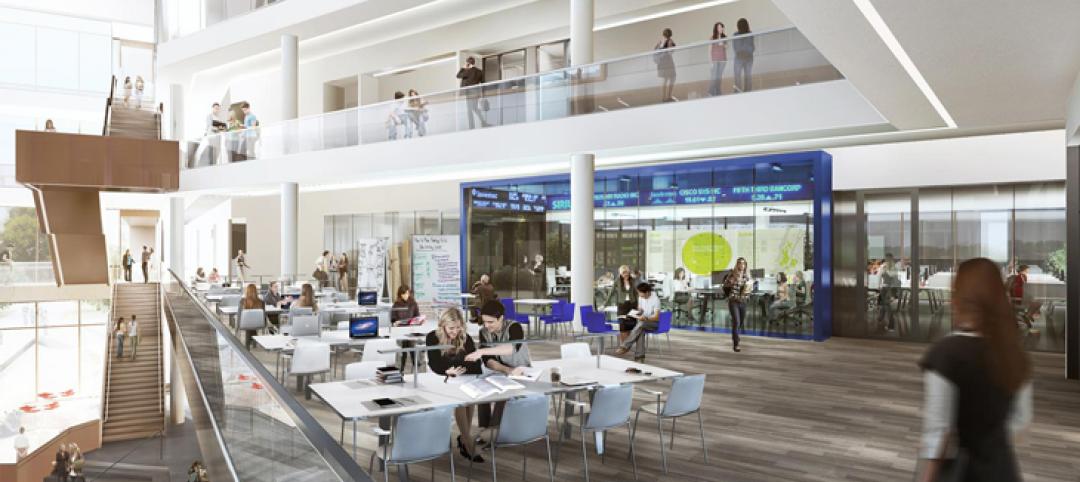Located at the corner of Telegraph and Haste Avenues, just three blocks from campus, UC Berkeley’s new Enclave Apartments is nearing completion.
The building, which will feature 55 dorm rooms and have an overall capacity of 254 students, has what the university is calling a “Moorish Castle” design. The original project team was inspired by Italian hill towns, Tibetan forts, and the rock-cut architecture of Petra in Jordan, according to Berkeleyside.com. The top half of the seven-story building has a very Mediterranean-inspired design; it isn’t until you take a peak at the lower three levels where that Petra inspiration really begins to take shape.
The bottom three floors feature a rock facade that looks like it would be more at home in a Disney theme park than near a college campus. The building’s entrance will be made of concrete meant to look like rock with the Moorish castle sprouting from the top about three floors up.
See Also: Kenya’s Pinnacle Tower will be the tallest tower in Africa
The all-gender facility will feature single gender, single and double rooms in shared apartments with two bathrooms. Other features include a shared kitchen with a living/dining area, an outside courtyard, two elevators, WiFi, a trash chute on each floor, and on-site laundry. Additionally, businesses will be housed on the ground floor.
The building is expected to be completed in the fall of 2020.
Related Stories
| Nov 3, 2014
An ancient former post office in Portland, Ore., provides an even older art college with a new home
About seven years ago, The Pacific Northwest College of Art, the oldest art college in Portland, was evaluating its master plan with an eye towards expanding and upgrading its campus facilities. A board member brought to the attention of the college a nearby 134,000-sf building that had once served as the city’s original post office.
| Oct 16, 2014
Perkins+Will white paper examines alternatives to flame retardant building materials
The white paper includes a list of 193 flame retardants, including 29 discovered in building and household products, 50 found in the indoor environment, and 33 in human blood, milk, and tissues.
| Oct 15, 2014
Harvard launches ‘design-centric’ center for green buildings and cities
The impetus behind Harvard's Center for Green Buildings and Cities is what the design school’s dean, Mohsen Mostafavi, describes as a “rapidly urbanizing global economy,” in which cities are building new structures “on a massive scale.”
| Oct 14, 2014
Proven 6-step approach to treating historic windows
This course provides step-by-step prescriptive advice to architects, engineers, and contractors on when it makes sense to repair or rehabilitate existing windows, and when they should advise their building owner clients to consider replacement.
| Oct 12, 2014
AIA 2030 commitment: Five years on, are we any closer to net-zero?
This year marks the fifth anniversary of the American Institute of Architects’ effort to have architecture firms voluntarily pledge net-zero energy design for all their buildings by 2030.
| Sep 24, 2014
Architecture billings see continued strength, led by institutional sector
On the heels of recording its strongest pace of growth since 2007, there continues to be an increasing level of demand for design services signaled in the latest Architecture Billings Index.
| Sep 22, 2014
4 keys to effective post-occupancy evaluations
Perkins+Will's Janice Barnes covers the four steps that designers should take to create POEs that provide design direction and measure design effectiveness.
| Sep 22, 2014
Sound selections: 12 great choices for ceilings and acoustical walls
From metal mesh panels to concealed-suspension ceilings, here's our roundup of the latest acoustical ceiling and wall products.
| Sep 17, 2014
New hub on campus: Where learning is headed and what it means for the college campus
It seems that the most recent buildings to pop up on college campuses are trying to do more than just support academics. They are acting as hubs for all sorts of on-campus activities, writes Gensler's David Broz.


